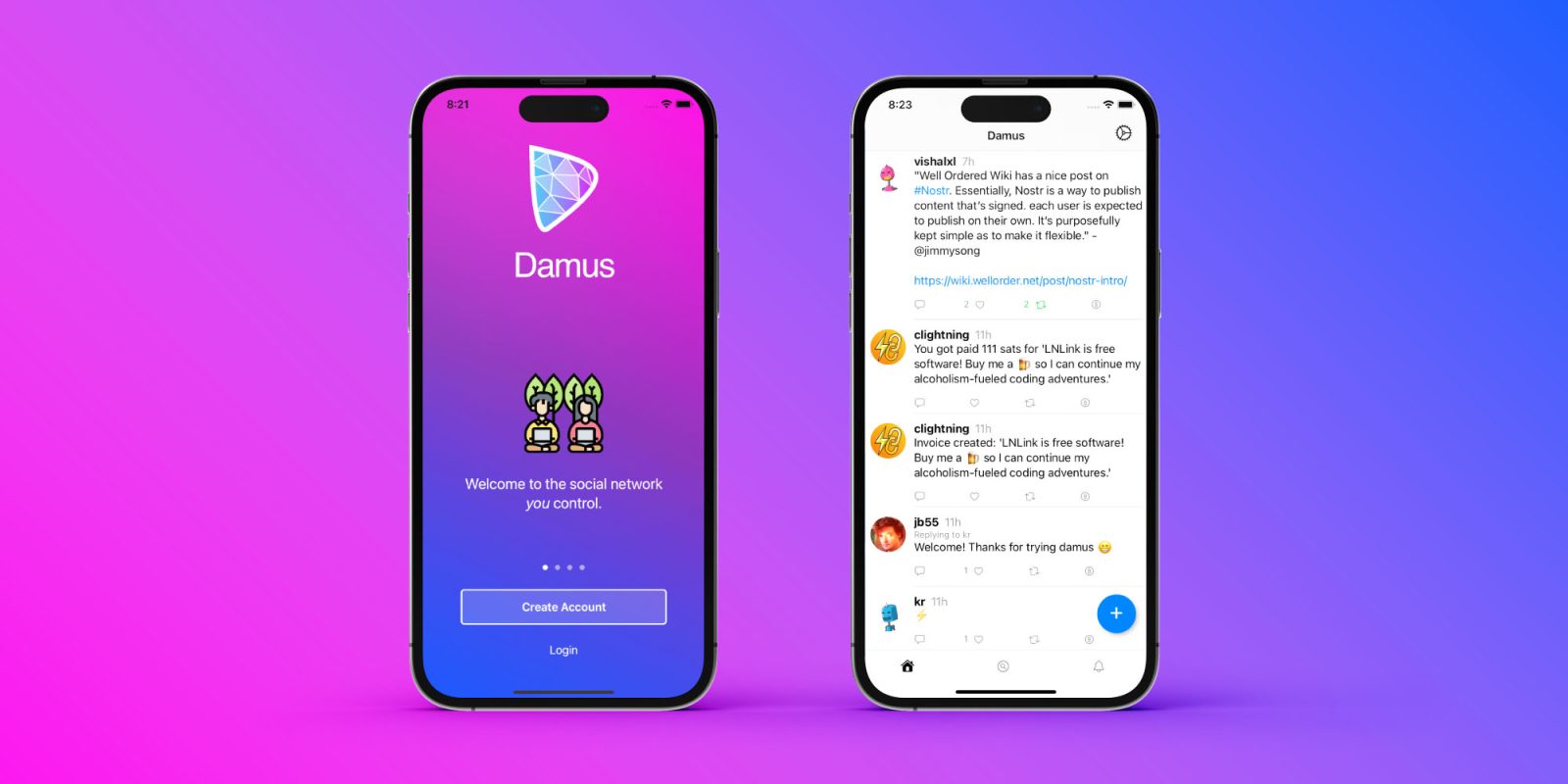
Twitter co-founder Jack Dorsey has celebrated the arrival in the App Store of the first Nostr iPhone app, Damus.
Dorsey described the launch of the app as “a milestone for open protocols,” effectively for the creation of a new generation of social tools that are free from big tech control …
What is Nostr?
If you’re not yet familiar with Nostr, the technical definition isn’t particularly enlightening:
A decentralized network based on cryptographic keypairs and that is not peer-to-peer.
The expanded name doesn’t tell you very much more: Notes and Other Stuff Transmitted by Relays. But essentially it aims to allow anyone to create their own social network platform to share with anyone you choose.
You don’t need a server, or any technical knowledge – or even a Nostr account, as that concept doesn’t exist. Nostr isn’t a platform, but a protocol. There is no Nostr company, no CEO, no board – only developers contributing to an open source protocol. All you need is a public key, or pubkey, which identifies you.
Right now, one of the main use cases is a Twitter-like service, but the possibilities are endless. Nostr is to social networking what HTTP is for information or IMAP is for communication. It’s a base-level protocol on which to build almost anything you like.
Nostr describes itself as free from censorship, and that’s absolutely correct: There is no gatekeeper controlling what is or isn’t allowed. Nostr is built on top of relays. Damus includes some recommended ones out of the gate and new ones are popping up daily.
Some paid relays claim to filter out spam, but the possibilities are ending. Home server products like Start9 even have Nostr relays in development. Nostr also supports end-to-end encrypted private messaging, again without any servers involved.
Nostr iPhone and iPad app Damus
If you want to use a Nostr iPhone or iPad app, then Damus has been available for a while now, but you had to get it semi-officially from a TestFlight link in the Github project. Now, however, you can download it from the App Store.
It could have been available a few weeks ago, but Apple continually rejected it. From reading through the rejection information, it’s clear Apple was trying to review it under the guidelines of a social networking service like Twitter instead of something like a web browser, accessing information through an open protocol.
Damus is designed to look and feel similar to the iOS Twitter app, but one immediate difference you’ll notice between it and any other social networking app is the privacy disclosure Apple requires of all apps. The official Twitter app disclosure lists the following data collection:
- Purchases
- Contact Info
- Browsing history
- Usage data
- Location
- User content
- Identifiers
- Search history
- Diagnostics
- Other data
Damus, in contrast, has the following disclosure:
Data Not Collected. The developer does not collect any data from this app.
Lightning integration
Nostr clients like Damus also include access to Bitcoin’s Lightning Network for sending tips to creators. Using an app like Strike, a Damus user could send $.10 to someone as a thank you for a blog article, podcast, or even just a quality post.
While it’s not feasible to send someone $.10 over a Visa card, Bitcoin’s layer 2 Lightning network allows anyone in the world to send money to anyone else in the world for virtually no cost, without needing access to a bank. Some Nostr fans claim that while Twitter’s currency is attention, Nostr’s currency is Sats (short for Satoshi’s). 1 Bitcoin is equal to 100,000,000 Satoshis
It remains to be seen whether the Nostr protocol takes off, but at a time when large social networks like Twitter and Facebook are proving increasingly contentious, it’s certainly an interesting option.
Bradley Chambers contributed to this piece.
FTC: We use income earning auto affiliate links. More.





Comments